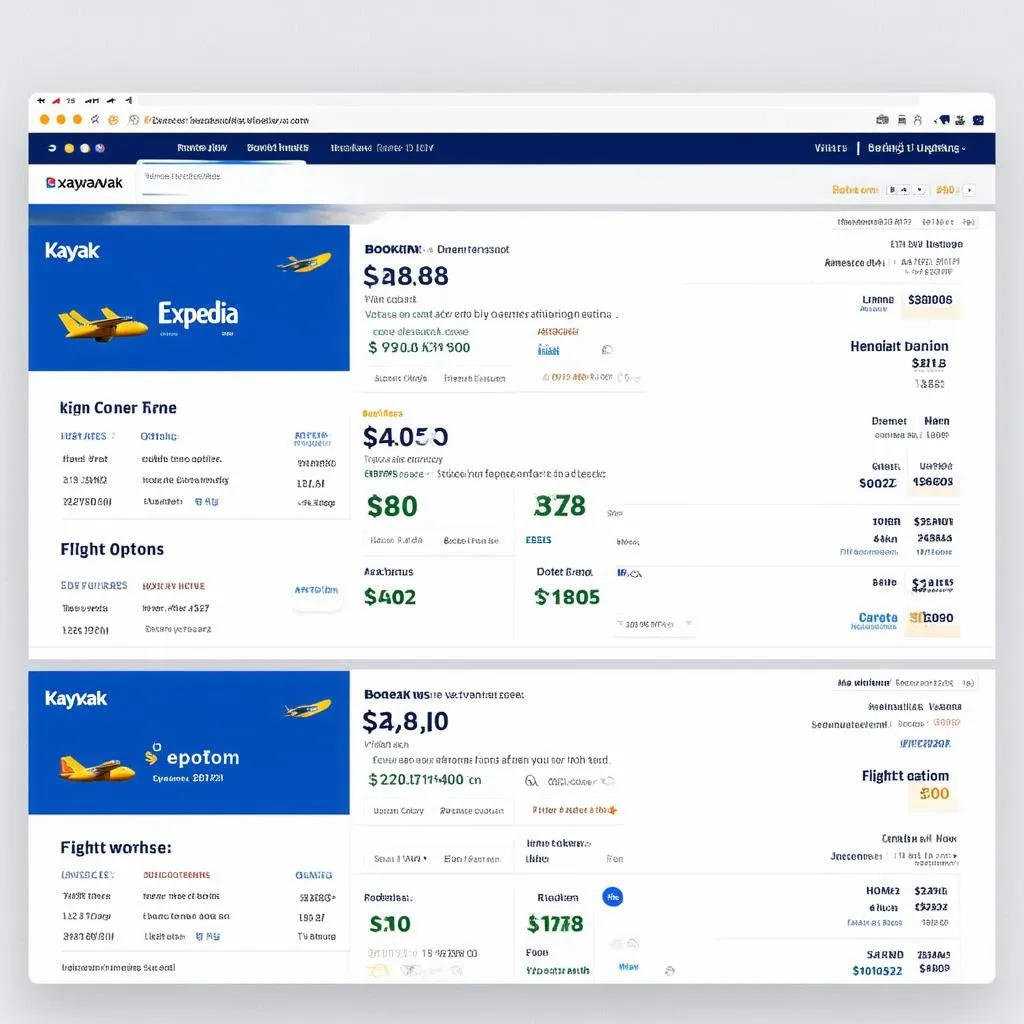Have you ever found yourself clicking through Kayak, Expedia, and Priceline, only to wonder if you’re actually comparing apples to apples? It’s a common thought: “Are All Travel Sites Owned By The Same Company?” Let’s dive into the fascinating world of online travel booking and clear up the confusion.
The Truth About Travel Site Ownership
The short answer is no, not all travel sites are owned by the same company. However, the online travel industry is more interconnected than you might think. While there are many independent players, a few major companies have a significant presence, often owning multiple brands under their umbrella.
The Big Players
- Expedia Group: This giant owns Expedia.com, Hotels.com, Vrbo, Orbitz, Travelocity, Hotwire, and more. If you’ve booked travel online, chances are you’ve used one of their platforms.
- Booking Holdings: This company is behind Booking.com, Priceline, Kayak, Agoda, Rentalcars.com, and OpenTable. They dominate the global market, especially in Europe and Asia.
Why Does it Matter?
Understanding who owns what can give you a clearer picture of:
- Pricing: While prices can vary across platforms, knowing the ownership structure helps you understand potential connections and influences.
- Inventory: While there may be some overlap, each platform within a group might have access to slightly different inventories or prioritize certain deals.
- Rewards Programs: Booking within the same family of brands can sometimes offer benefits like loyalty points or exclusive deals.
Navigating the Travel Site Maze
With so many options, how do you find the best deals?
Tips for Smarter Booking:
- Compare, Compare, Compare: Don’t just settle for the first price you see. Use multiple websites, including those owned by different companies, to get a broader view of prices.
- Clear Your Cookies: Websites often track your browsing history and adjust prices accordingly. Clear your cookies or use incognito mode for a fresh search.
- Be Flexible: If possible, adjust your travel dates or consider alternative airports to potentially unlock better deals.
- Read the Fine Print: Pay attention to cancellation policies, baggage fees, and other restrictions before booking.
Beyond the Big Names
While the giants hold a large market share, don’t discount smaller, independent travel sites. These can offer unique experiences, specialized services, or focus on specific regions. For instance, if you’re planning a trip to Malaysia, you might find specialized deals on a website like “AA Travel and Tours Malaysia.”
 Travel Site Comparison
Travel Site Comparison
Planning Your Trip: More Than Just Booking
Finding the right flights and accommodation is just the start. Consider these aspects for a truly enriching journey:
Travel Planning Tips:
- Embrace Local Culture: Immersing yourself in the local culture is key to a fulfilling trip. Research local customs, try regional delicacies, and engage with the community respectfully.
- Pack Light: Overpacking can weigh you down, literally and figuratively. Pack only essentials and leave room for souvenirs.
- Stay Connected: Ensure you have a reliable way to stay connected, whether it’s through international roaming, a local SIM card, or portable Wi-Fi.
The Feng Shui of Travel
In many cultures, travel is seen as more than just visiting new places; it’s about shifting your energy and perspective. Feng Shui, the ancient Chinese practice of harmonizing energy, offers insights into enhancing travel experiences.
- Choose Auspicious Dates: Some believe that selecting travel dates aligned with your personal Feng Shui chart can bring good fortune.
- Pack Intentionally: Consider packing items that symbolize your travel intentions. For instance, carrying a crystal for clarity or a journal for reflection can set the tone for your journey.
Frequently Asked Questions
Q: Do travel agents still exist?
A: Yes! Travel agents are still very much relevant, especially for complex itineraries, luxury travel, or for those who prefer personalized assistance. They can leverage their expertise and industry connections to secure the best deals and curate unique experiences.
Q: What are LSI keywords and how do they relate to travel?
A: LSI stands for Latent Semantic Indexing. In simple terms, they are keywords related to your main keyword. For example, LSI keywords for “travel” could include “vacation,” “flights,” “accommodation,” “destinations,” etc. Using these keywords naturally in your content helps search engines understand your content better and can improve your website’s ranking.
 Planning a Trip
Planning a Trip
Conclusion
The world of online travel booking can feel overwhelming, but by understanding the players and utilizing smart strategies, you can navigate it with confidence. Remember, the journey begins long before you board the plane. So start planning, explore your options, and get ready for an unforgettable adventure!
For more travel tips and insights, explore other informative articles on travelcar.edu.vn. We’re here to guide you towards your next great escape.